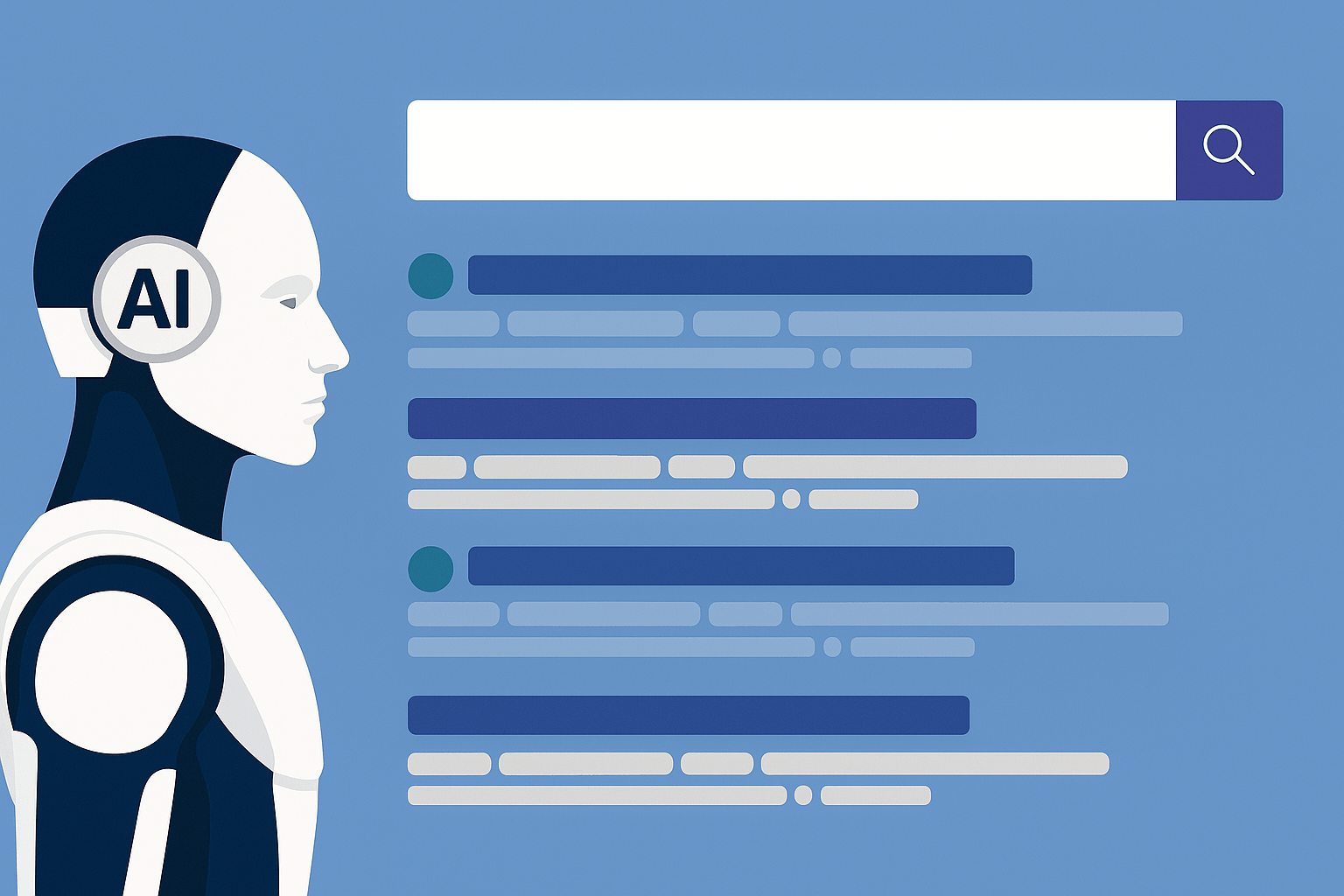Pioneering
Accounting
Acquisition
accountingprospects.com/blogs

AI is fundamentally transforming B2B content marketing—especially when it comes to search engine optimization. Forward-thinking marketers are now strategically blending AI-driven efficiency with human creativity to produce high-quality content that not only ranks well but also genuinely engages readers and converts leads at unprecedented speeds. This balance between automation and authenticity is creating new competitive advantages in the increasingly crowded digital landscape.
1. Smarter, Faster Content Production at Scale
Advanced AI tools like Jasper.ai, Copy.ai, and ChatGPT are enabling content teams to ideate, outline, and draft comprehensive long-form content in minutes rather than days. These sophisticated platforms analyze vast content libraries and keyword data to create SEO-informed drafts specifically tailored to your target audience and search intent. The technology goes beyond simple word generation to understand context, competitive landscape, and user needs.
What makes this approach particularly powerful is how it addresses the traditional content bottleneck in B2B organizations. Teams can now focus their expertise on strategy and refinement while AI handles the heavy lifting of initial content creation and structure.
- Keyword research and clustering becomes semi-automated, revealing topic opportunities you might otherwise miss.
- Content briefs and outlines can be generated based on competitive analysis of top-ranking content.
- First drafts that would typically take days now take minutes, accelerating the entire content pipeline.
According to content strategist Don Davis, PhD, MBA, the most successful implementations use AI to enhance rather than replace the human element: "AI should be your first draft writer, not your publisher."
2. Google's SGE Is Forcing an Evolution in Content Strategy
Google's Search Generative Experience (SGE) represents a paradigm shift in how users interact with search results. SGE uses AI to generate concise, comprehensive answers pulled from multiple authoritative sources. This fundamentally changes the objective for content marketers: instead of just ranking #1 in traditional results, the goal is now to be featured prominently in AI-generated summaries and overviews.
To succeed in this new environment, B2B content must be more:
- Authoritative and credible – with clear expertise signals and data-backed claims
- Structurally optimized – using clear headings, lists, and schema markup that AI can easily parse
- Directly relevant to user queries – addressing specific questions comprehensively rather than broadly
- Unique in perspective – offering insights that aren't available in dozens of similar articles
According to research from Vende Digital, content formatted with clear headers, FAQ sections, and concise, authoritative paragraphs is significantly more likely to be featured in SGE summaries. Their analysis of over 5,000 B2B search queries found that content with structured data and clear expertise indicators was 3.7x more likely to be included in AI-generated answers.
3. Real-World Results from AI Content Engines in Action
The impact of AI-enhanced content strategies extends beyond theoretical improvements. Concrete business results are already emerging across B2B industries:
A compelling real-world example comes from a global formalwear distributor that implemented ChatGPT to generate product descriptions and integrate with inventory management logic. The results were transformative:
- 60% reduction in content production time across thousands of product SKUs
- 40% decrease in overstocking through better prediction and alignment of product descriptions with actual inventory
- 22% increase in organic traffic from search engines due to more comprehensive and keyword-rich product content
- Improved conversion rates from more detailed, benefit-focused product narratives
As reported in Business Insider, the company's approach wasn't simply to replace writers with AI, but to create a hybrid workflow where AI handled the repetitive aspects of content creation while human editors focused on quality control, brand voice consistency, and strategic differentiation.
4. Best Practices for Implementing AI in Your B2B SEO Content Strategy
Successfully integrating AI into your content operations requires thoughtful implementation. Based on our analysis of top-performing B2B content programs, we recommend these best practices:
- Use AI for structure and speed – Let AI tools create outlines, gather research, and generate first drafts, but always layer human editing for tone, nuance, and brand alignment.
- Prioritize E-E-A-T content principles – Focus on creating content with demonstrable Experience, Expertise, Authoritativeness, and Trustworthiness, which both search engines and human readers value.
- Design for skimmability and AI parsing – Structure content with clear headings, bullet points, tables and organized information that both humans and AI systems can easily navigate.
- Implement regular content refreshes – Establish systematic content audits and updates as both search algorithms and AI summarization capabilities evolve.
- Measure more than rankings – Track engagement metrics, conversion rates, and featured snippet appearances alongside traditional SERP positions.
The most successful organizations view AI not as a replacement for quality but as an enabler that frees human talent to focus on higher-value activities like strategy, emotional resonance, and subject matter expertise that AI cannot replicate.
5. Future Trends: Where AI and SEO Are Heading Next
Looking ahead, several emerging trends will likely shape the intersection of AI and B2B content strategy:
- Multimodal content creation – AI systems will soon generate not just text but integrated packages of text, images, videos and interactive elements optimized for search.
- Hyper-personalization at scale – Content will be automatically tailored to individual user profiles, company sizes, industries and stages in the buying journey.
- Predictive content optimization – AI will increasingly predict which content updates will have the highest ROI before you make them.
- Voice and visual search integration – Content strategies will expand to optimize for voice queries and image recognition technologies.
The organizations that will thrive are those that embrace AI as a strategic partner in content creation while maintaining their unique brand perspective and subject matter expertise. Balance is key – automation without strategic direction leads to undifferentiated content that fails to connect with readers or convert prospects.
More in Marketing
loyal accounting clients.

